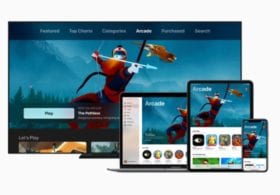
Michael Lowe
By Michael Lowe, President, A Parent Media Co. Inc. and founder, Kidoodle.TV
When you work in the children’s programming space, the phrase “Generation Z” comes up frequently. But while defining Gen Z as the kids born roughly after 1995 is easy, actually understanding the needs and desires of the youngest, most digitally ensconced subset of Gen Z – kids up to 12 years – is a more delicate needle to thread.
Gen Z is a group that demands authentic and compelling content, together with their parents. Even if they’re too young to articulate it fully, they expect brands to stick to their words and companies to live up to their promises.
It’s easy to forget that Gen Z is our youngest age group – they have such discriminating tastes, coupled with sophisticated digital knowledge that started from their first days with a screen. Immersed in media and digital technology from an early age, they live in a digital world marked by information overload and rapid change. Almost from day one, parents must struggle, balancing screen time boundaries with ensuring their children are technologically prepared and competitive.
When the kids are older, brands that helped them get that balance right are the ones who will earn their loyalty first.
It’s easy to forget that Gen Z is our youngest age group – they have such discriminating tastes, coupled with sophisticated digital knowledge that started from their first days with a screen.
In the race to capture the kids’ media space, corporations can no longer simply muse about finding ways to impose strict broadcast-delivered, branded content upon a certain audience and then sell merchandise behind it. A carefully-crafted corporate façade that masks individuals’ words and actions with politically correct corporate identity will fail with Gen Z and their parents. Instead, today’s conversation needs to focus on authenticity – the currency with which Gen Z travels.
Gen Z is considered the first real “digital natives,” with sophisticated expectations and short attention spans (likely due to the limited amount of time they’re given to process mass information blasts). This presents challenges for creators and content distributors, who not only must understand this connected group, but must also deliver media in a real-time, on demand environment through a unique web of cloud-based delivery mechanisms and omni-channel approaches.
If that wasn’t complex enough, this all must be accomplished while building and maintaining a relevant corporate identity founded on genuine statements matched by corporate actions and a strong moral persistence. Thanks to social media proliferation and a greater global influence, Gen Z has developed a strong social conscience at an early age. Brands that think it’s OK to say one thing and do another … beware.
This generation needs tailor-made experiences.
Gen Z has extremely sophisticated needs, as well. This is a group that wants visual education that also serves as entertainment, and it wants an interactive, two-way experience that adds value to individual lives. Plus, Gen Z is accustomed to getting quality information and can even create sophisticated content built upon readily-accessible tools and the compounded works of others. This generation needs tailor-made experiences.
These are not unusual traits for a collection of young people, but the difference here is that Gen Z has instant access to diverse, complex and interconnected pieces of information, along with the tools that make its demands possible. Couple this with an inherent comfort with social channels – honed since nearly birth – and you get a group that will quickly sniff out phoniness.
That’s a lot to coordinate, which makes the race to dominate in the kids’ market so competitive. It requires brand participants to have a strong corporate strategy, a unique approach to content identification, acquisition and delivery, and a willingness to quickly adapt.
Getting Gen Z’s attention means we must earn our place by being relevant in their lives. To gain their loyalty and patronage, we must gain their trust. Who will be quick and nimble enough to get to the finish line in this race?
Media executive, entrepreneur and father Michael Lowe founded A Parent Media Co. Inc. as a way to make the online world a safer place for kids, as well as to make a positive impact on families through a strong corporate social mandate that gives back to the community. In 2012, he assembled a team of like-minded individuals to develop Kidoodle.TV, a unique streaming video on demand service for kids ages 12 and under, and to build and lead APMC with a corporate vision that combines a return on investment with corporate responsibility.
The Cynsiders column is a platform for industry leaders to reach out to colleagues, followers, and the public at large. In their own words, columnists address breaking news, issues of the day, and the larger changes going on in the ever-evolving world of television, video and digital. Cynsiders columns live on Cynopsis’ main page and are promoted across all daily newsletters. We welcome readers’ comments, queries, and column ideas at RDawn (@) cynopsis.com






